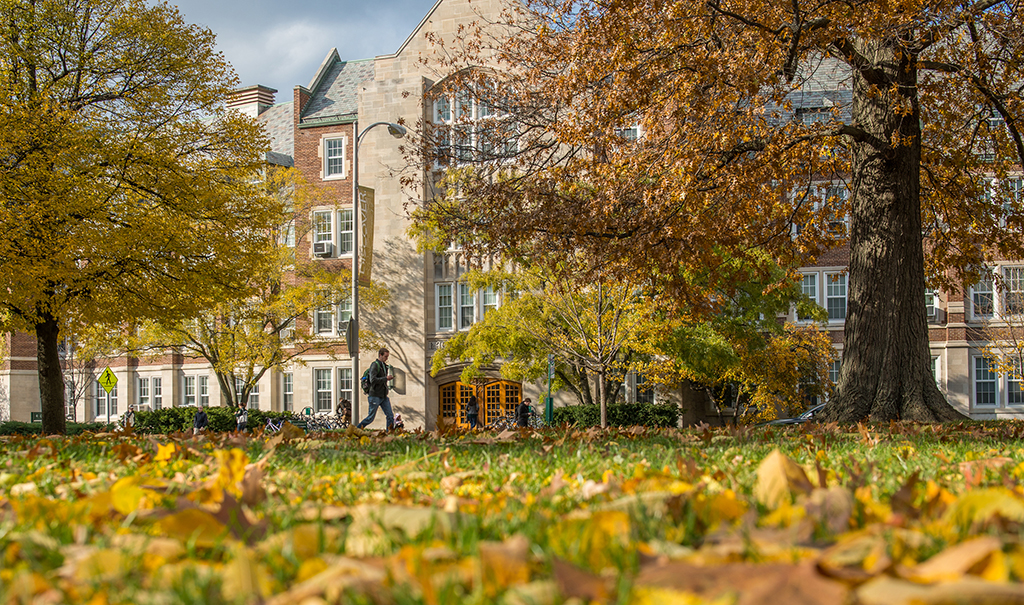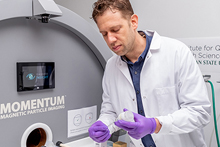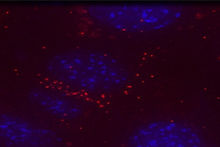
MSU scientist studying treatments for cancer lands NSF early career award
Michigan State University chemist Liangliang Sun has received a 5-year, $670,000 National Science Foundation, or NSF, Early CAREER Award to develop a novel mass spectrometry-based analytical method to identify and to quantify protein molecules that cannot currently be detected in biological samples.
Cellular proteins do most of the work in cells. Consequently, identifying and quantifying protein molecules in cells at a global scale, called proteomics, can have major scientific implications, allowing scientists to determine which proteins particular cells are using for growth and development at specific times. Such knowledge could unlock treatments for cancer or greater understanding of cellular growth and development.

Motivated to Make a Difference
ExpiredStudent Bailey Higgins motivated to support childhood cancer research at MSU
After seeing cancer up close, I was inspired to do something about it.
I shaved my head twice to raise money for pediatric cancer research and, as a student at Michigan State University, where I was captain of the field hockey team, I organized a fundraiser for St. Baldrick’s Foundation, which supports research into childhood cancers.

Improving chemotherapy delivery
ExpiredMSU research team creates new way to monitor chemotherapy concentrations for treatments
Michigan State University scientists have invented a new way to monitor chemotherapy concentrations, which is more effective in keeping patients’ treatments within the crucial therapeutic window.
With new advances in medicine happening daily, there’s still plenty of guesswork when it comes to administering chemotherapy to cancer patients. Too high a dose can result in killing healthy tissue and cells, triggering more side effects or even death; too low a dose may stun, rather than kill, cancer cells, allowing them to come back, in many cases, much stronger and deadlier.

Tiny bubbles in our body could fight cancer better than chemo
ExpiredNano-sized bubbles in our body could become mini treatment transporters, carrying a combination of therapeutic drugs and genes that target cancer cells and kill them
Healthy cells in our body release nano-sized bubbles that transfer genetic material such as DNA and RNA to other cells. It’s your DNA that stores the important information necessary for RNA to produce proteins and make sure they act accordingly.
These bubbly extracellular vesicles could become mini treatment transporters, carrying a combination of therapeutic drugs and genes that target cancer cells and kill them, according to new research from Michigan State University and Stanford University.
